# Value Exchange Canvas
Concept
A business is a platform for establishing value exchange.
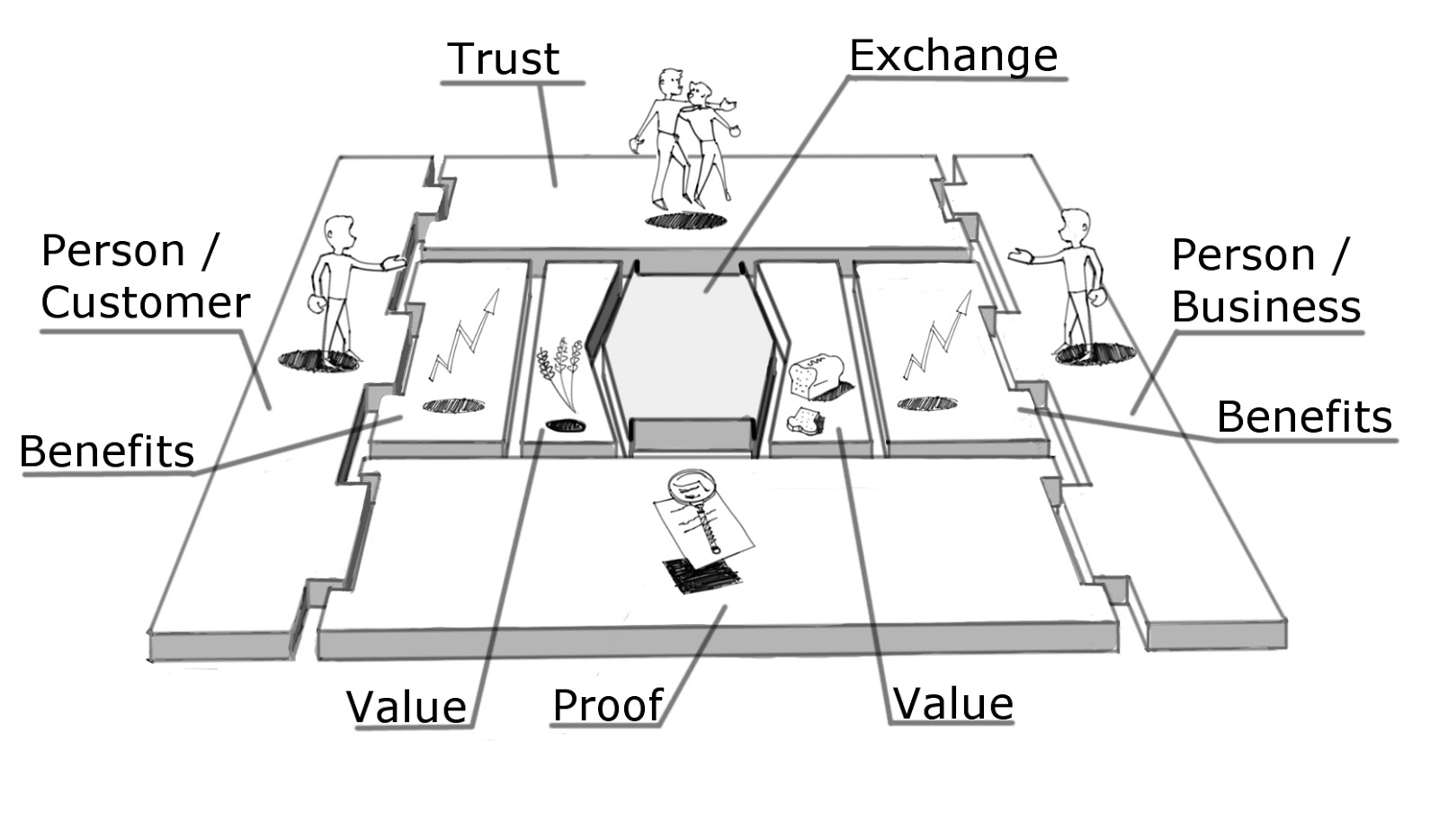
This article is about how to get a new perspective on your business by simply looking at thé fundement: the value exchange. For this I came up with a tool inspired by the "Business Modal Canvas" (opens new window) that consists of clear building blocks that helps you to evaluate your current business, marketing and communication and to come up with new ideas to improve it.
Note
Please do not confuse this canvas by the famous "Business Modal Canvas". It is something I created because I thought it was missing in the literature I had at hand.
# Value
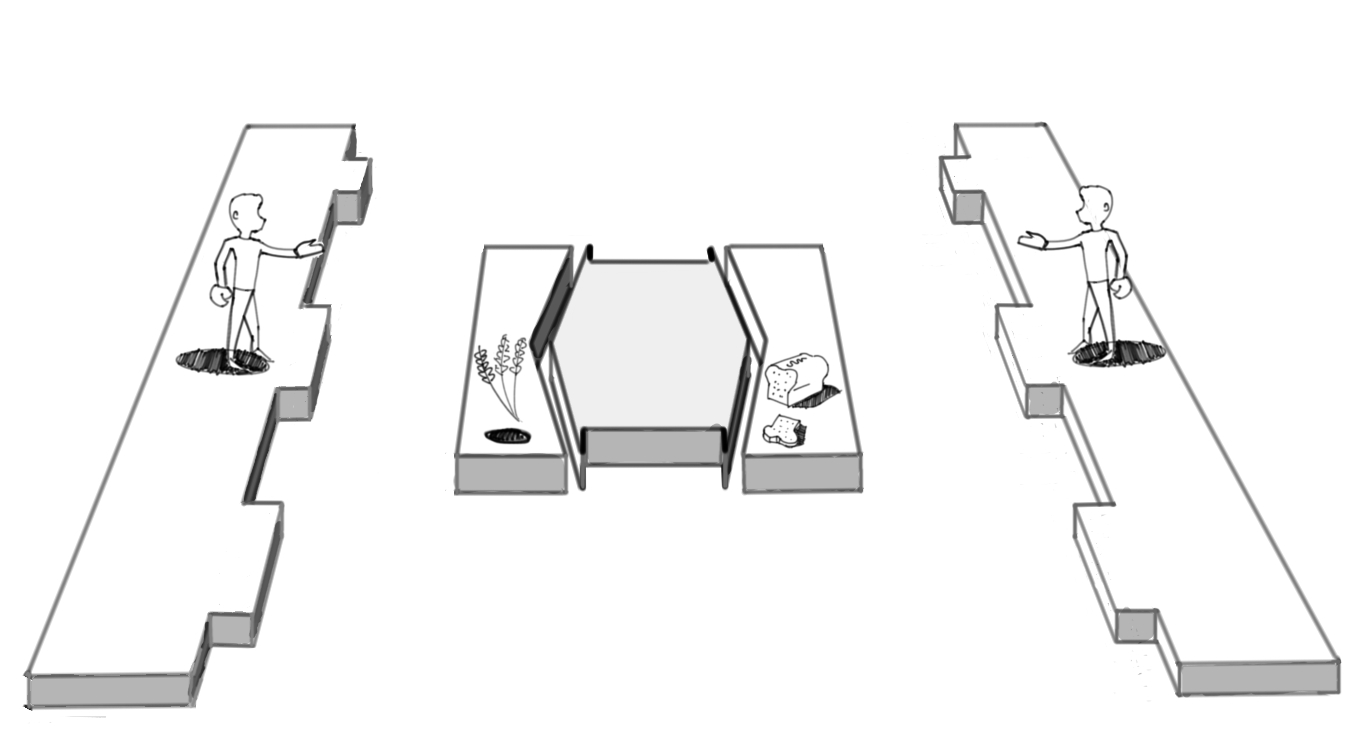
The figure above depictures a situation of two persons owning some good valuable to one other. In the past this would resolve literally in the exchange of goods, but for modern business there is of course almost always money on one side of the equation. We do this for the simple reason that ‘money -> product exchange’ is a lot more practical than pure goods exchange. You cannot easily store millions of breads or transport it to the other side of the world. With money you can. Furthermore with money you can trade with someone who doesn't need your stuff. If you would for example own only chickens how could you buy a bread if the bakery doesn't need chickens? With money humanity has created a virtual good that shares the same social value to anyone.
This building block requires you to think about what the intrinsic values are in the goods you want to exhange.
Still there is a lot more to say about the value exchange itself. Why would you buy a bread from that particular bakery? Why would you buy bread if you also could buy rice? There are an infinite amount of reasons why some value exhanges get established and why others do not. In general three important conditions must to be met for any value exchange to be taken place. By understanding these you can ultimately grow your business.
Main Aspects:
- Benefits
- Trust
- Proof
# Benefits
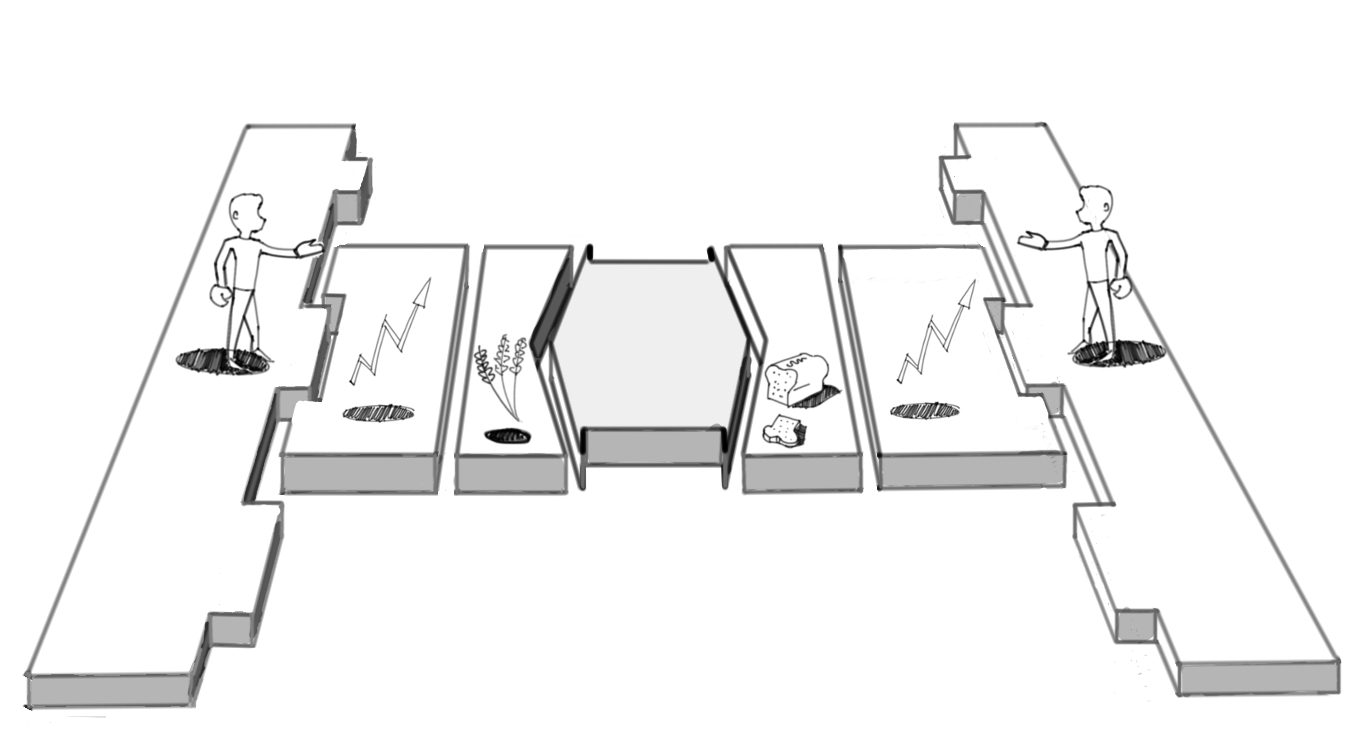
So why would you and your customer choose for this particular exchange? The first reason to favor a certain exchange over another is that the exchange has unique benefits for both parties:
- A customer chooses for example to exchange his money for a bicycle from a certain reseller because the deal comse with certain benefits that competitors do not have. Maybe the reseller added a free maintenance check or the bike was just a bit cheaper.
- On the same time, if the bicycle reseller sells the bicycle for the same price he bought it from his own suppliers, he would exchange value with the customer but would not gain any profit himself.
While financial profit is the obvious benefit business owner are seeking for, there can be more. I argue that entrepreneurs need to think about other ways they can benefit from a deal apart from money. Like customers are selective who to buy from, good entrepreneurs should be selective who to sell to. Entrepreneurs are just as important in the value exhange equation as customers are!
Futhermore it is important to note that benefits do not mean the same thing to every person. To create meaningful benefits an entrepreneur need to understand a customer completely. What are their needs and their problems? What can you do so customers benefit more from your exhanging more than from others? The better the benefits (the more sugger) you can add for your audience the more likely it is they will choose you and thereby the more (financial) benefits you can retrieve yourself. This is an essential part of value creation. Keep that in mind.
This building block requires you to think about how to create meaningful benefits for your customers and how to communicate them.
# Trust
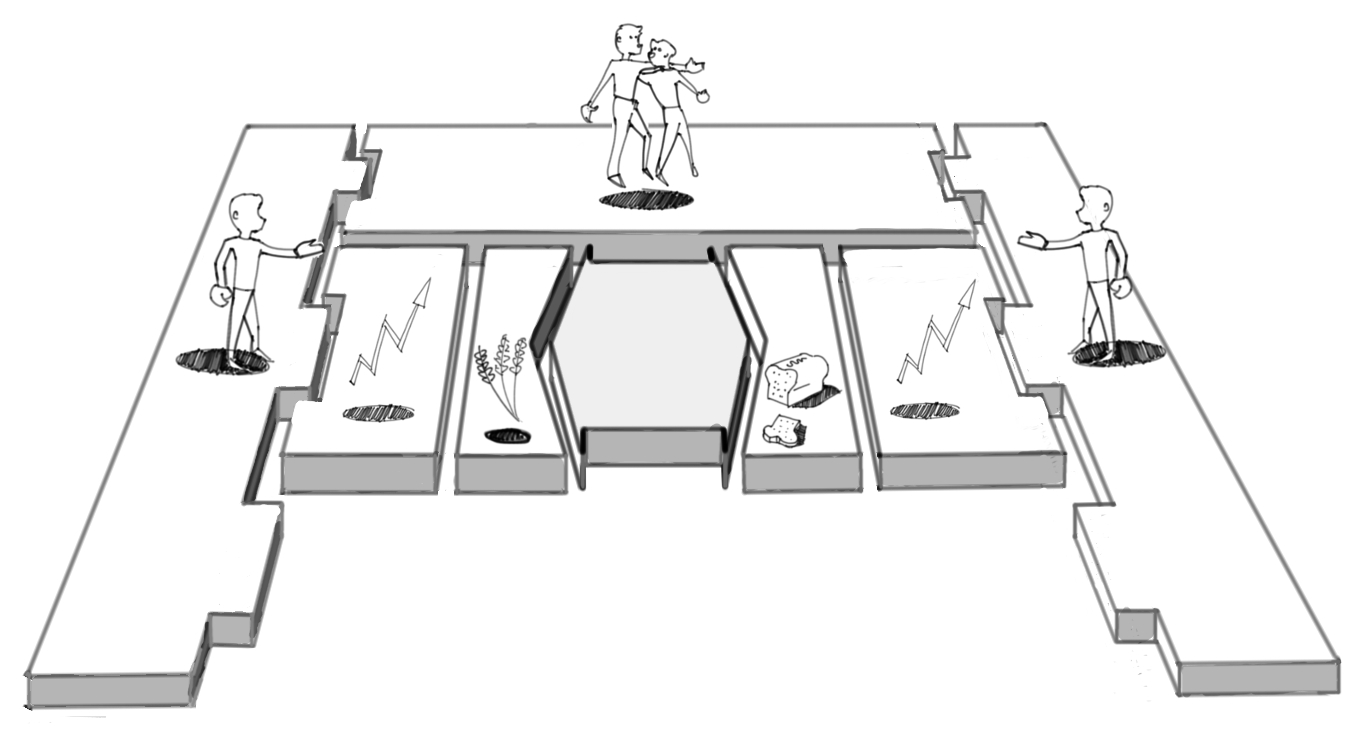
The next critical exhange enabling factor is: trust. If there is no trust-relationship it is simply impossible to do an exchange. Except of course if someone points a gun at you. “Give me your money or your life”.
This building block requires you to think about how to create a trust-relationship between your business and your audience and how you will communicate your trustworthiness.
The more trust we have in the other party, the more likely an exchange will take place. The more people already purchased your products the more people will follow and exchange their money for your product as well.
For Business-to-business keep in mind that businesses often buy from other businesses in order to delegate risk. Outsourcing your business administration for instance to an expert team is less risky than doing it yourself, eventhough you can absolutely do it yourself. The experts are routined and understand the matter deeper than you. The more risk a customer outsources to another business the more important trust will be. So think about how much risk is a customer puting in your hands? The more risk is involved the more trustworthy your company and products or services have to be.
I furthermore believe that we conceptually do not buy from companies. In the end we buy always from other humans, and the more human you can make your business, the easier it is for others to simply trust you. So come up with a personal story instead of hiding yourself behind a template webshop. Ever wondered why brands exist? This is the answer! Because it’s the only way a big company with nameless employees can be namefull and by that human.
TIP
A brand is an artificial way to create a person we know that others trust.
# Proof
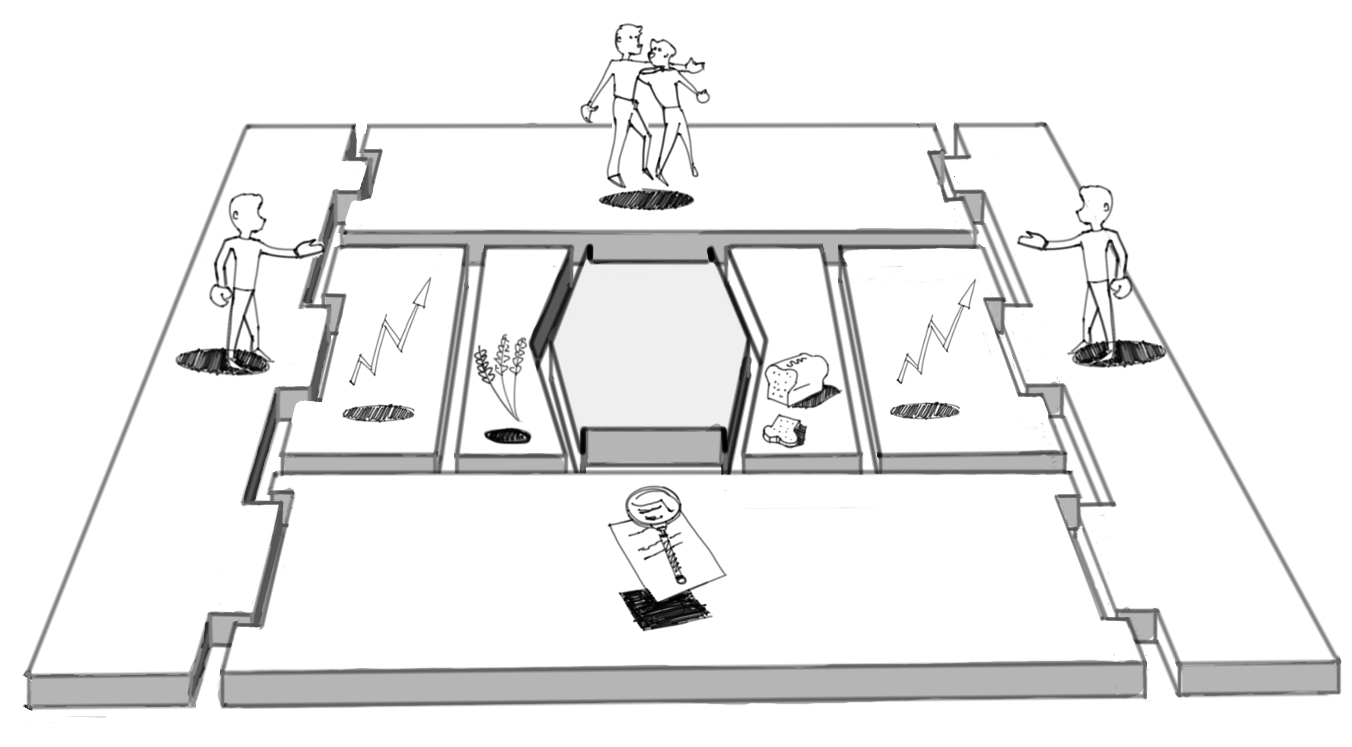
The final condition for establishing a value exchange is the Proof block.
Proof acts opposite to trust. If there is no trust actual proof is required. The more trust the less proof is required. If Apple (the company) simply puts their logo on a phone people buy it whether or not it has proven as a solid product. Therefore the younger the company is the more proof is required. The more established a company is the more it can rely on trust and loyalty. That's why branding matters for the long term!
This building block requires you to think about how to prove the value and benefits to your audience.
# Template
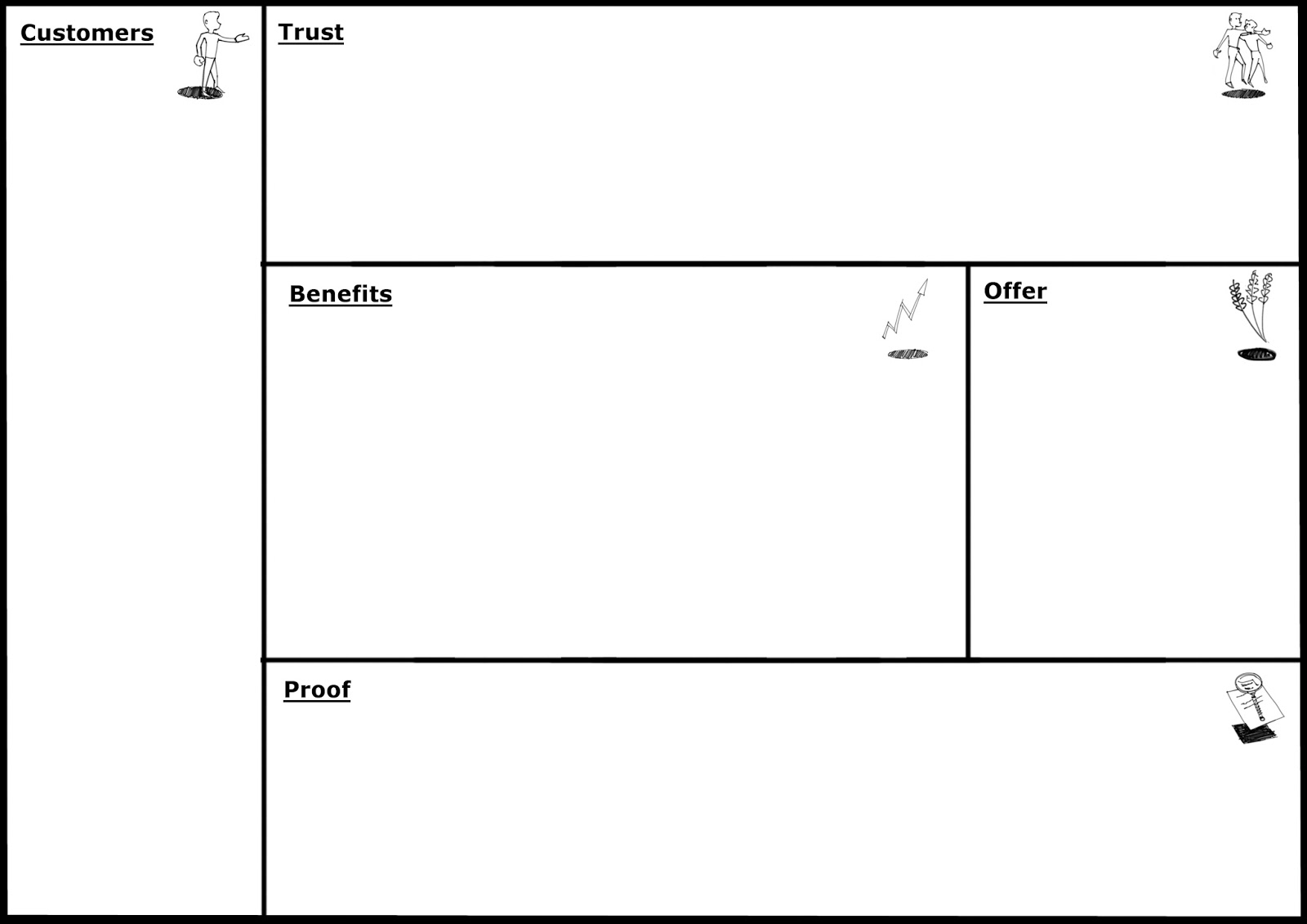
How can you improve these building blocks for your own business? I have created a template so you can start a brainstorm or discussion with others.